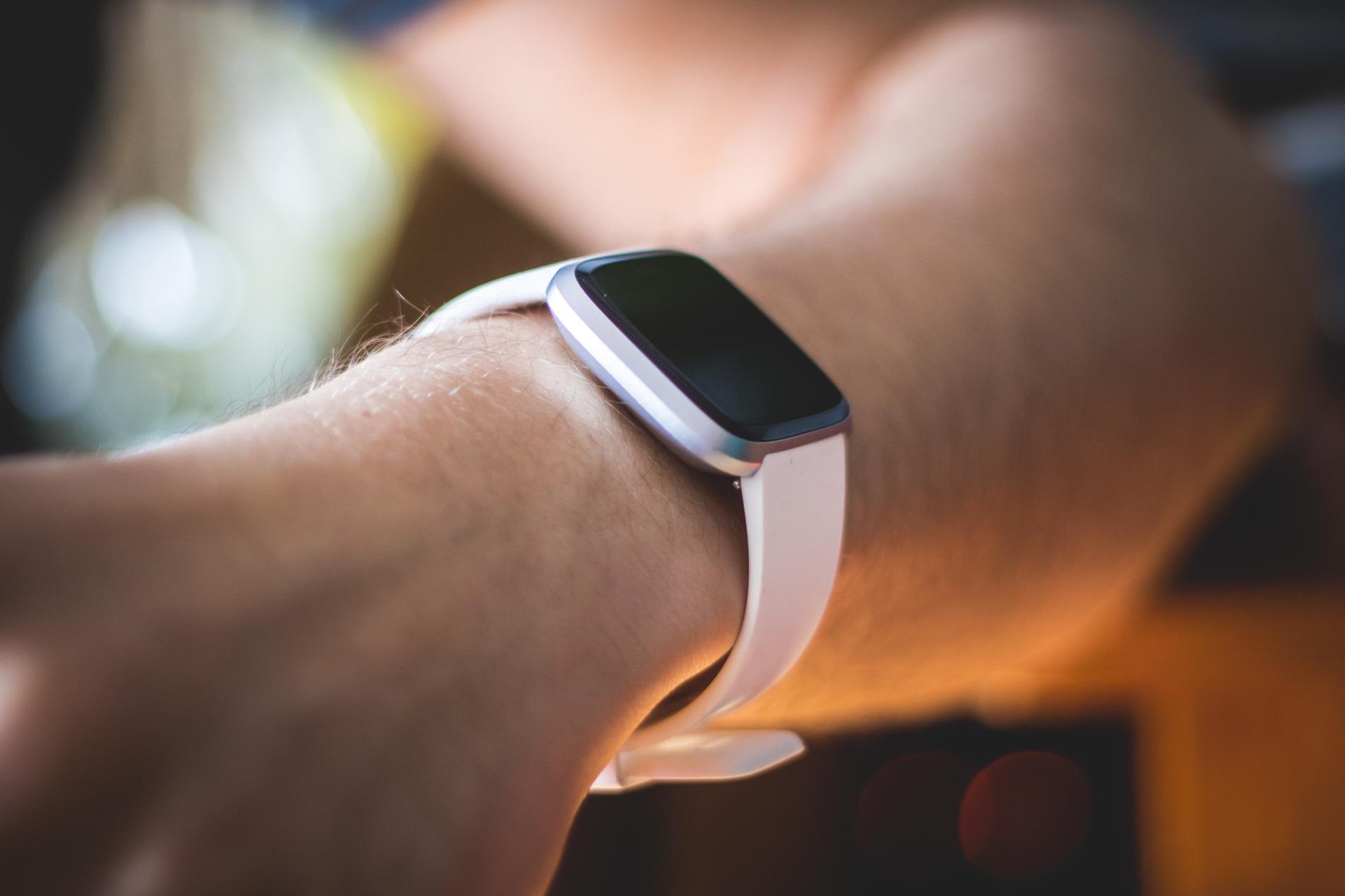
Chanel
July 11, 2016, 7:41 p.m.

I was watching my doctor type my monthly prescription when my heart dropped. Around her already slim wrist, just under the sleeve of her white lab coat, was a black Fitbit.
I felt physically sick.
I’ve seen my GP for a few months now and overall I really liked her. She listened to my needs, didn’t have the fake “concerned” face when I described my struggles, and laughed when I made stupid jokes. But seeing this Fitbit? I started to re-evaluate everything.
I thought: Does she know that these fitness tracking devices aren’t accurate? They are way off when it comes to monitoring heart rate. And, is she one of those people who thinks they can overcome death with the right mix of diet, exercise, and pixie dust?
The truth is, the eating disorder “voice” in my head screams like a goat personifying Taylor Swift whenever I see a Fitbit.
***
Smart technology can be amazing tools in recovery. I can text friends if I suddenly have a brief moment of panic, set inspirational quotes as my background, and play games about avian mood regulation difficulties and matching candy to distract from unreasonable anxiety.
But it’s a double-edged sword.
When I was struggling, my phone was my lifeline; I googled every bite of food. Despite never consistently using a planner in my life, I meticulously tracked my diet and exercise. Graphs were shown to me automatically, reminding me that my loss of weight and loss of self were linear and correlated. Push notifications warned me that I hadn't yet reached a daily limit, creating a secret thrill; a small release of dopamine flooding my system.
Eating disorders have a tendency to isolate. When I’m permanently exhausted, how can I laugh at the stupid pun my partner made? How can I care about the trivial inner workings of my friends and family? Those things get pushed away. Loneliness still rears its head, but technology fills that void.
And the message boards.
Users are encouraged simply by describing their own behaviours. Magazine covers weren’t enough because everyone knows they’re Photoshopped; these “real people” were more inspiring. If I felt like I failed by exceeding my daily limits, they would comfort me.
I would think to myself, other people having compassion for me when I "mess up"? I don’t even have compassion for myself!
The existence of that compassion, however, underlined the fact that I comforted because I did something wrong. It reaffirmed my irrational food rituals and low self-esteem.
But there were unavoidable moments when I couldn’t use my phone. Working, showering, riding airplanes. There were moments of reprieve that are harder to avoid if you pay rent.
And in those moments, alongside anxiety and obsessive thoughts, the brain was allowed to breathe. The biological part of the body that says, “I need food to live” was a little louder.
And Fitbits/Fitness Trackers?
They’re pieces of socially acceptable jewelry you don’t ever have to take off. Talking to your boss, painting a house, making love, even bathing (they have waterproof models now).
Disturbingly, Fitbits and fitness trackers put you in competition with your friends and family, and maybe even those “online friends” mentioned before. This can be positive encouragement to improve your health (i.e. better cardiovascular health, improved mood and energy, sleep hygiene regulation, etc.), but it also creates a “winner” and a “loser”. These kinds of goals can be problematic for a number of reasons.
For one, being the “loser” can wreck havoc on self-esteem. Even if someone is using the Fitbit “responsibly” without disordered behaviours, having a bad day lets the “loser” and their competitors know that they “failed”. Fitbit doesn’t say you lost, but being “demoted” doesn’t feel much different. A person may give up, feeling shame, or overcompensate beyond what is healthy.
Another problem is the daily goals.
Reaching goals releases dopamine. Companies know how dopamine works in tandem with these goals and take advantage of the consumer.
In the case of disordered eating, research has found that individuals with binge-eating behaviours have a shorter specific allele (form of a gene) in comparison to those without disordered behaviours and those with other eating disorders, which “indicates… dysregulation of dopamine reuptake” (Manabu et al., 2004). They hypothesized that the way the brain absorbs dopamine can influence binge eating and substance abuse.
Another study found “… [disturbances of dopamine] concentration… is associated with [anorexia nervosa] and… might have a related disturbance of reward mechanisms” (Frank et al., 2005) when comparing recovered individuals affected by anorexia to individuals without disordered behaviours.
In non-clinical terms, dopamine makes you feel good. If you do something that makes you feel good, you will keep doing it. These studies suggested that those with eating disorders could be more susceptible to behaviours that balance dopamine.
Walk 10,000 steps, dopamine is released from exercise. Then you get the reward vibration from the Fitbit, more dopamine. You get first place. Even more dopamine. Then your brain adjusts. It needs more dopamine to make you feel as good as before.
So you take more steps.
Get more vibrations.
Get more “first places”.
Arrive late to meet a friend because the “long way” had more steps.
Leave work early to attend another fitness class.
Miss your partner’s birthday party.
Miss your own birthday.
Post pictures of your “new bod”.
Get likes.
Walk 10,000 steps, salivate on your phone.
Dopamine response happens with all disordered behaviours of eating disorders, but the Fitbit just adds that extra sweet boost to those already susceptible.
And people are buying these overpriced pieces of technology (one-third of Fitbit owners have a household income of $100,000 or more) for themselves and for their children.
As I briefly entertained buying a Fitbit on Amazon, I quickly closed the page when I saw the price. I should have closed it because owning one would be disastrous for me, but it was honestly the price that first shocked me.
***
I’m sitting in a coffee shop enjoying my Coconut Cream FroCho made by a barista who is wearing a red Fitbit on her right wrist, as I chat with a friend wearing a polka-dotted one on her left.
I remind myself that I’m strong enough to avoid, what would be for me, colourful shackles.
I can walk 200 steps or 20,000 steps, but I won’t count. I am a free woman.
Now excuse me while I play some Pokemon Picross. It’s time-gated and my dopamine levels need adjusting.
Resources:
1. http://www.ncbi.nlm.nih.gov/pmc/articles/PMC383345/?tool=pmcentrez
2. http://www.sciencedirect.com/science/article/pii/S0006322305005767
Chanel loves cats, video games, makeup, books, and animated movies. She is currently attending York University studying Psychology and works at a psychiatry clinic as an intake coordinator. She also performs plays, improv and sketch comedy, and sings better than non-singers but worse than actual singers.
Categorie

Feb. 4, 2018, 6:24 p.m.

Feb. 3, 2018, 8:04 p.m.